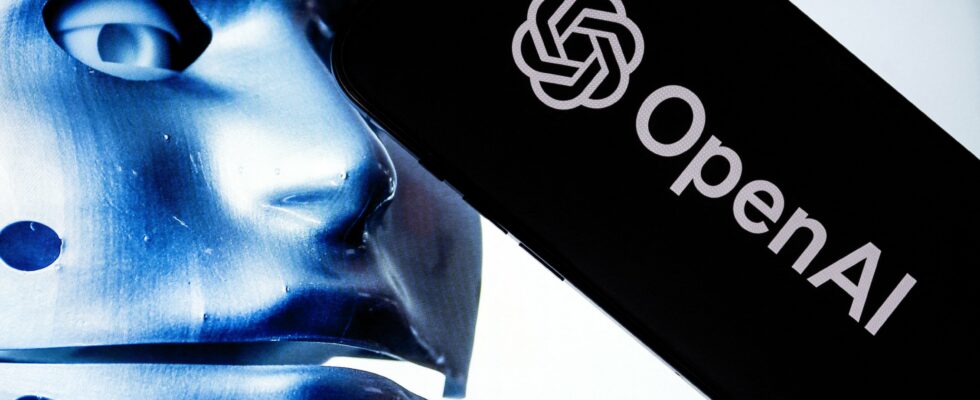Until now, OpenAI was known as the non-profit star… worth billions. But the parent company of ChatGPT could significantly change in size. OpenAI, founded in 2015 as a non-profit organization, set new milestones on Friday, December 27 on the path to transforming into a for-profit company in 2025. The goal of this plan to overhaul its corporate structure? Raise more capital to develop its artificial intelligence (AI) tools. “We once again have to raise more capital than we imagined. Investors want to support us but […] they need conventional equity”, explains OpenAI on its sitedetailing his project.
OpenAI, which intends to “guarantee that general artificial intelligence benefits all humanity”, therefore indicates that it will transform its existing commercial structure – that which sells, for example, subscriptions to the more advanced version of ChatGPT – into a company with profit with shares. This is for OpenAI to ease the restrictions imposed by its current non-profit parent company. “Our current structure does not allow the board to directly consider the interests of those who will fund the mission and does not allow the nonprofit to easily control for-profit organizations,” OpenAI notes in his blog post.
OpenAI will, however, remain a non-profit entity. “We have a nonprofit and a for-profit organization today, and we will continue to have both, with the success of the for-profit allowing the nonprofit to be well funded, better supported and in a stronger position for the mission,” explains OpenAI on its site.
Transformation into a public benefit company
Concretely, OpenAI plans to transform its existing for-profit arm into a public benefit corporation, incorporated in Delaware. “Our plan is to transform our existing for-profit organization into a Public Benefit Corporation (PBC) with common stock and the OpenAI mission as a public interest,” details OpenAI. “The nonprofit’s significant ownership stake in the existing for-profit would take the form of PBC stock at a fair value determined by independent financial advisors. This would significantly multiply the resources our donors have given “, explains the parent company of ChatGPT. OpenAI’s rivals, such as Anthropic and Elon Musk-owned xAI, use a similar structure. Under the proposed structure, the Public Benefit Corporation (PBC) will therefore direct and control the operations and activities of OpenAI. This plan “would create one of the most well-resourced nonprofits in history,” says OpenAI.
Alongside business operations, “the nonprofit will hire a management team and staff to pursue charitable initiatives in sectors such as healthcare, education, and science,” argues OpenAI. As reported by ReutersUnlike PBCs, nonprofit corporations have no shareholders and reinvest profits in their mission rather than distributing them to individuals.
A fundraising of 6.6 billion dollars
OpenAI launched the wave of generative artificial intelligence with ChatGPT, launched in late 2022 and now used by more than 300 million people every week, according to OpenAI. This fall, it concluded a major fundraising of $6.6 billion, which then valued it at $157 billion. At the same time, it confirmed that it wanted to become a for-profit company.
Because the start-up, still unknown to the public two years ago, is far from profitable. OpenAI expected to lose around $5 billion this year 2024, despite having a turnover of around $3.7 billion, according to the New York Times. Generative AI models, trained on vast amounts of data to produce high-quality text, images, and other content, are power-hungry and require cutting-edge microchips like those from Nvidia, which are highly expensive.
OpenAI and Sam Altman, the co-founder and emblematic boss of the start-up, must also face legal proceedings launched by Elon Musk, boss of the AI start-up xAI launched in 2023, and future member of the administration of Donald Trump. At the beginning of December 2024, Elon Musk again asked the American courts to prevent OpenAI from transforming into an entirely for-profit company.
